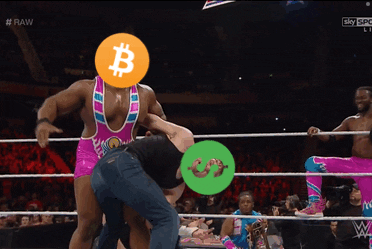American economist Kenneth Rogoff isn’t sugarcoating it: crypto is nipping at the U.S. dollar’s global dominance like a cheeky upstart. Rogoff, the former IMF chief economist and Harvard professor, tells Bloomberg the dollar’s grip is loosening.
He says the dollar’s dominance is “fraying at the edges,” with the renminbi gaining ground and the euro expanding its footprint, a slow burn that’s been happening for a decade. But here’s the kicker: Rogoff points to crypto as a sneaky new player helping erode the dollar’s throne, especially in the shadowy world of tax evasion and sanctions dodging.
Rogoff highlights the underground economy, worth a staggering $20 to $25 trillion, or about 20% of the global economy. This “gray market” used to be a cash-heavy domain ruled by U.S. dollars. Now, crypto is stealthily stealing the spotlight. In his book Our Dollar, Your Problem, Rogoff explains how crypto isn’t mainstream in the legal economy yet, but it’s making waves underground where criminals and tax evaders love to lurk.

Why Crypto’s Rise Makes the Dollar Sweat and Governments Fret
The dollar losing ground isn’t just a headline; it impacts everything from Treasury bill rates to mortgages, car loans, and student debt, thanks to the U.S.’s “exorbitant privilege” as the world’s top reserve currency. Plus, less dollar dominance means the U.S. government struggles more to track financial flows and sniff out national security risks.
Funny enough, last year Senator Cynthia Lumis claimed Bitcoin reserves could help the dollar stay strong. But Rogoff is clear: crypto has real value. Critics who call crypto worthless are “completely wrong.” Crypto serves as an accepted medium of exchange, especially underground, where government rules lose their grip.
In Rogoff’s words:
“Crypto can’t replace the dollar in the legal economy, but in the underground economy, it’s a different story.”
So yeah, crypto isn’t going anywhere, and it’s got some serious bite.

Disclaimer: All materials on this site are for informational purposes only. None of the material should be interpreted as investment advice. Please note that despite the nature of much of the material created and hosted on this website, HODL FM is not a financial reference resource, and the opinions of authors and other contributors are their own and should not be taken as financial advice. If you require advice. HODL FM strongly recommends contacting a qualified industry professional.





